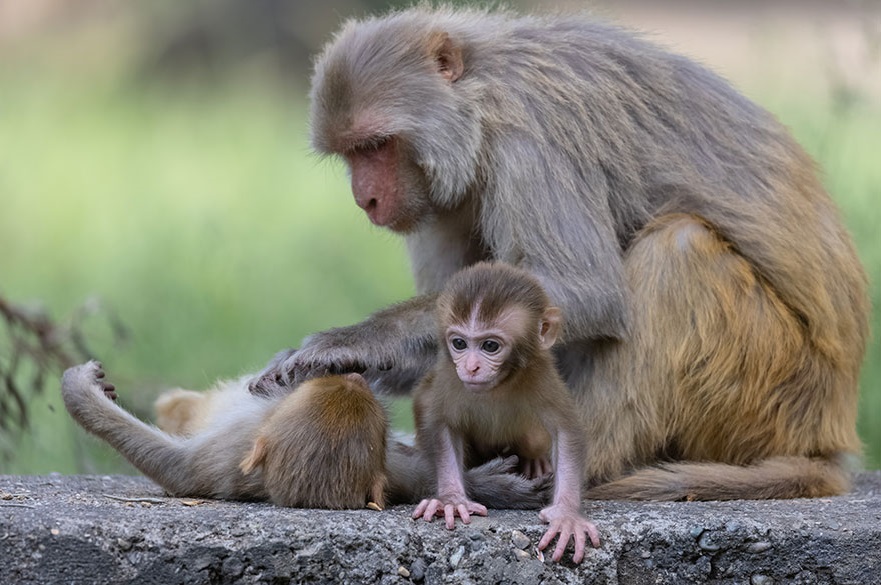Baby monkeys who receive more care from their mothers develop stronger facial expression recognition skills as they grow, which could help them to navigate vital social groups more effectively.

The study by Nottingham Trent University (NTU) involved 83 rhesus macaques from 15 different social groups. Babies were observed with their mothers during their first 14 weeks of life to measure behaviours such as grooming, cradling, and mother approaching the infant
Once the macaques were at least one year old, researchers observed how they responded to images of primate faces displaying different facial expressions, such as threatening faces or submissive bared-teeth expressions.
When shown images with increasing levels of threat, their attention grew as the intensity of the threat increased, showing they were sensitive to the subtle differences in the facial expressions.
Lastly, the research tested their reaction to an unexpected change in facial expressions. The macaques were shown a sequence of five identical facial expressions, followed by one which was unexpectedly different. They spent significantly more time looking at the final, different face, suggesting they recognised the change.
Findings showed that the macaques who experienced higher quality maternal care – more grooming and cradling – during infancy were better at processing the facial expressions.
Researchers also found that facial expression processing skills improved with age until around four years old, suggesting that facial expression processing is not purely instinctive and fixed, but that experience and environmental influences play a role, much like in humans.
Olivia O’Callaghan, PhD researcher at NTU’s School of Social Sciences, said: “Most primates are highly social animals that depend on social relationships to thrive. Having strong social connections within their group can have a positive effect on primates’ health and survival, as it could have benefits such as increased mating opportunities, access to food and protection from threats.
“The ability to interpret facial expressions is believed to help primates navigate complex social systems and hierarchies and could help them to predict future actions of group members.”
Project lead, Professor Bridget Waller, said: “Facial expression has evolved as a key method of communication in primates, including humans, and these findings show how these skills rely on social experience to develop properly.”
The work is part of a European Research Council funded project led by NTU’s Professor Bridget Waller. Individual differences in facial expressivity: Social function, facial anatomy and evolutionary origin(FACEDIFF) is an interdisciplinary project investigating the evolution of facial expression and how this results in benefits or costs in an individual’s social engagement.
Maternal care predicts facial expression processing in macaques by Olivia O’Callaghan, Dr Jamie Whitehouse, Associate Professor Annika Paukner, Dr Claire Witham (Centre for Macaques), and Professor Bridget Waller has been published in the journal iScience.
